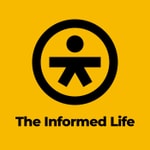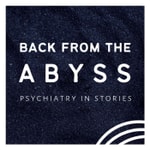GeriPal - A Geriatrics and Palliative Care Podcast – Details, episodes & analysis
Podcast details
Technical and general information from the podcast's RSS feed.

GeriPal - A Geriatrics and Palliative Care Podcast
Alex Smith, Eric Widera
Frequency: 1 episode/9d. Total Eps: 366

Recent rankings
Latest chart positions across Apple Podcasts and Spotify rankings.
Apple Podcasts
🇺🇸 USA - medicine
26/07/2025#95🇫🇷 France - medicine
25/07/2025#88🇺🇸 USA - medicine
24/07/2025#93🇺🇸 USA - medicine
18/07/2025#94🇨🇦 Canada - medicine
17/07/2025#76🇨🇦 Canada - medicine
15/07/2025#88🇬🇧 Great Britain - medicine
14/07/2025#76🇺🇸 USA - medicine
14/07/2025#87🇬🇧 Great Britain - medicine
13/07/2025#42🇺🇸 USA - medicine
13/07/2025#81
Spotify
No recent rankings available
Shared links between episodes and podcasts
Links found in episode descriptions and other podcasts that share them.
See all- https://www.blogger.com/
830 shares
- https://stopaapihate.org/
430 shares
RSS feed quality and score
Technical evaluation of the podcast's RSS feed quality and structure.
See allScore global : 32%
Publication history
Monthly episode publishing history over the past years.
Stump the VitalTalk Communication Experts: A Podcast with Gordon Wood, Holly Yang, Elise Carey
Episode 324
jeudi 29 août 2024 • Duration 48:06
Serious illness communication is hard. We must often deliver complex medical information that carries heavy emotional weight in pressured settings to individuals with varying cultural backgrounds, values, and beliefs. That’s a hard enough task, given that most of us have never had any communication skills training. It feels nearly impossible if you add another degree of difficulty, whether it be a crying interpreter or a grandchild from another state who shows up at the end of a family meeting yelling how you are killing grandma.
On today’s podcast, we try to stump three VitalTalk expert faculty, Gordon Wood, Holly Yang, Elise Carey, with some of the most challenging communication scenarios that we (and some of our listeners) could think up.
During the podcast, we reference a newly released second-edition book that our guests published titled “Navigating Communication with Seriously Ill Patients: Balancing Honesty with Empathy and Hope.” I’d add this to your “must read” list of books, as it takes readers through the VitalTalk method that our guests use so effectively when addressing these challenging scenarios.
If you are interested in learning more about VitalTalk, check out their and some of these other podcasts we’ve done with three of the other authors of this book (and VitalTalk co-founders):
-
Our podcast with Tony Back as well as Wendy Anderson on “Communication Skills in a Time of Crises”
-
Our podcast with James Tulsky on “The Messiness of Medical Decision-Making in Advanced Illness.”
-
Any one of our podcasts with Bob Arnold, including this one on the language of serious illness or this one on books, to become a better mentor.
Lastly, I reference Alex’s Take Out the Trash video, where he uses communication skills learned in his palliative care training at home with his wife. The results are… well… let’s just say less than perfect.
By: Eric Widera
What is Death? Winston Chiong and Sean Aas
Episode 323
jeudi 22 août 2024 • Duration 48:15
We’ve talked about Brain Death before with Robert (Bob) Troug and guest-host Liz Dzeng, and in many ways today’s podcast is a follow up to that episode (apologies Bob for mispronouncing your last name on today’s podcast!).
Why does this issue keep coming up? Why is it unresolved? Today we put these questions to Winston Chiong, a neurologist and bioethicist, and Sean Aas, a philosopher and bioethicist. We talk about many reasons and ways forward on this podcast, including:
-
The ways in which advancing technology continually forces us to re-evaluate what it means to be dead - from the ability of cells/organs to revive, to a future in which organs can be grown, to uploading our consciousness to an AI. (I briefly mention the Bobiverse series by Denise Taylor - a science fiction series about an uploaded consciousness that confronts the reader with a re-evaluation of what it means to be human, or deserving of moral standing).
-
The moral questions at stake vs the biologic questions (and links between them)
-
The pressures the organ donation placers on this issue, and questioning if this is the dominant consideration (as Winston notes, organ donation was not central to the Jahi McMath story)
-
What we argue about when we argue about death - the title of a great recent paper from Sean - which argues that “we must define death in moralized terms, as the loss of a significant sort of moral standing,” - noting that those why are “dead” have something to gain - the ability to donate their organs to others.
-
Winston’s paper on the “fuzziness” around all definitions of brain death, titled, Brain Death without Definitions.
As we joke about at the start - talking with philosophers and bioethicists, you almost always get a response along the lines of, “well that’s a good question, but let’s examine a deeper more fundamental question.” Today is no different. And the process of identifying the right questions to ask is absolutely the best place to start.
Eventually, of course, everything must cease.
Urinary Incontinence Revisited: George Kuchel & Alison Huang
Episode 314
jeudi 20 juin 2024 • Duration 45:06
I have to start with the song. On our last podcast about urinary incontinence the song request was, “Let it go.” This time around several suggestions were raised. Eric suggested, “Even Flow,” by Pearl Jam. Someone else suggested, “Under Pressure,” but we’ve done it already. We settled on, “Oops…I did it again,” by Britney Spears.
In some ways the song title captures part of the issue with urinary incontinence. If only we lived in a world in which much of urinary incontinence was viewed as a natural part of aging, the normal response wasn’t embarrassment and shame, but rather an ordinary, “Oops…I did it again.” And if only we lived in a world in which this issue, which affects half of older women and a third of older men, received the research and attention it deserves. We shouldn’t have therapeutic nihilism about those who seek treatment, yet urinary incontinence is woefully understudied relative to its frequency and impact, and as we talk about on the podcast, basic questions about urinary incontinence have yet to be addressed. I don’t see those perspectives as incompatible.
Today we talk with George Kuchel and Alison Huang about:
-
Urinary incontinence as a geriatric syndrome and relationship to frailty, disability, and cognitive decline
-
Assessment of incontinence: the importance of a 48 hour voiding diary, when to send a UA (only for acute changes)
-
How the assessment leads naturally to therapeutic approaches
-
Non-pharmacologic approaches including distraction, scheduled voiding, and pelvic floor therapy
-
“Last ditch” pharmacologic treatments.
-
Landmark studies by Neil Resnick and Joe Ouslander.
Enjoy!
Dementia and high risk surgery: Joel Weissman and Samir Shah
Episode 224
jeudi 30 juin 2022 • Duration 42:29
You have a patient with dementia severe enough that she cannot recognize relatives. She falls and breaks her hip. Should she have an operation, and risk the pain, potential complications, and attendant delirium associated with the operation? Should she be treated non-operatively, with aggressive symptom management? A huge part of this decision rests on (1) her previously stated wishes, values, and goals (prior to the onset of dementia); and (2) the outcomes of surgery for patients with dementia.
In today’s podcast we talk with surgeon Samir Shah and Health Services Researcher Joel Weissman about a pair of JAGS articles they published on the outcomes of high risk surgery and advance care planning among persons with dementia. Toward the end we get to hear from Samir about how he would approach decision making for a patient such as the above patient, and from Joel Weissman about what’s to be done about the pressure and incentives our health system exerts to operate, operate, operate.
-@AlexSmithMD
How to discuss stopping screening: Mara Schonberg
Episode 223
jeudi 23 juin 2022 • Duration 43:19
Cancer screening is designed to detect slow growing cancers that on average take 10 years to cause harm. The benefits of mammography breast cancer screening rise with age, peak when women are in their 60s, and decline thereafter. That is why the American College of Physicians recommendation regarding mammography for women over age 75 is:
In average-risk women aged 75 years or older or in women with a life expectancy of 10 years or less, clinicians should discontinue screening for breast cancer.
Today we talk with Mara Schonberg, who has been tackling this issue from a variety of angles: building an index to estimate prognosis for older adults, writing about how to talk with older adults about stopping screening, a randomized trial of her decision aid, and how to talk to older adults about their long term prognosis. In the podcast she gives very practical advice with language to use, and references her decision aid, which is available on ePrognosis here.
Mara keeps working at it, and the more she works, the closer we are to fine.
-@AlexSmithMD
Managing Urinary Symptoms and UTI’s in Older Adults: A Podcast with Christine Kistler and Scott Bauer
Episode 222
jeudi 16 juin 2022 • Duration 48:01
There are a lot of old myths out there about managing urinary tract symptoms and UTI’s in older adults. For example, we once thought that the lower urinary tract was sterile, but we now know it has its own microbiome, which may even provide protection against infections. So giving antibiotics for a positive urine culture or unclear symptoms may actually cause more harm than good.
On today’s podcast, we are gonna bust some of those myths. We’ve invited some very special guests to talk about the lower urinary tract - Christine Kistler and Scott Bauer.
First, we talk with Christine, a researcher and geriatrician from the University of North Carolina, who recently published a JAGS article titled Overdiagnosis of urinary tract infections by nursing home clinicians versus a clinical guideline. We discuss with her how we should work-up and manage “urinary tract infections” (I’ve added air quotes to “UTI” in honor of Tom Finucane’s JAGS article titled “Urinary Tract Infection”—Requiem for a Heavyweight in which he advocated to put air quotes around the term UTI due to the ambiguity of the diagnosis.)
Then we chat with Scott Bauer, internist and researcher at UCSF, about how to assess and manage lower urinary tract symptoms in men. We also discuss Scott’s recently published paper in JAGS that showed that older men with lower urinary tract symptoms have increased risk of developing mobility and activities of daily living (ADL) limitations, perhaps due to greater frailty phenotype.
Who should get Palliative Care? Kate Courtright
Episode 221
jeudi 9 juin 2022 • Duration 45:20
Palliative care, in contrast, saw explosive growth in US hospitals. In contrast to geriatrics, the evidence base for palliative care lagged clinical growth, in part because palliative care has no centralized “home” at the National Institutes of Health. The National Palliative Care Research Center (NPCRC)and Palliative Care Research Cooperative (PCRC)were founded in part to meet this need.
Today we interview Kate Courtright, a critical care and palliative care physician-researcher who conducts trials of palliative care. Kate’s journey is in a way emblematic of the lack of centralized funding for palliative care: she’s received funding from three separate NIH institutes, the NPCRC, and been involved in the PCRC.
We talk with Kate about how despite how far we’ve come in palliative care research, we still don’t have answers to some fundamental questions, such as:
- Who should get specialized palliative care? Should eligibility and access be determined by clinician referral? By diagnosis? By prognosis? By need?
- If we move away from clinician referrals as the means by which people get access, how do we keep the clinicians engaged, and not enraged? Can nudges help? (see our prior podcast on Nudges with Jenny Blumenthal-Barby and Scott Halpern)
- When should people get palliative care? What does “early” really mean? We can’t possibly meet the needs of all people with newly diagnosed serious illness
- How do we move from efficacy (works in highly controlled settings) from effectiveness (works in real world settings? What’s the role of implementation science? What is a pragmatic trial?
- What outcomes should we measure?
We cover a lot of ground! Working on a mystery. Going wherever it leads. Runnin down a dream…
-@AlexSmithMD
What We Now Know About COVID Prevention and Treatment: A Podcast with Monica Gandhi
Episode 220
jeudi 2 juin 2022 • Duration 51:32
We are two and a half years into the COVID pandemic. We’ve lived through lockdowns, toilet paper shortages, mask mandates, hospital surges where ICU’s overflowed, a million COVID deaths, prolonged school closures, development and roll out of novel vaccines, an explosion of social isolation and loneliness, and the invention of the “zoom meeting.”
But what have we really learned over this seemingly endless pandemic other than how to make a quarantini? Well, on today’s podcast we invite Monica Gandhi to sum up the evidence to date about how best to prevent getting COVID (or at least the severe outcomes of the disease) and how to treat it, including the role of Paxlovid in symptomatic disease.
Monica Gandhi is a professor of medicine and associate division chief of HIV, Infectious Diseases, and Global Medicine at UCSF & San Francisco General Hospital. In addition to her research publications, she is a prolific writer both on social media and on media outlets like the Atlantic and the Washington Post. Some call her an optimist or maybe a pragmatist, but I’d call her someone who inherently understands the value in harm reduction when it’s clear harm elimination just ain’t gonna happen.
So take a listen and if you want a deeper dive into some of the references we discuss on the podcast, here is a list:
- Medscape article on how “COVID-19 Vaccines Work Better and for Longer Than Expected Across Populations, Including Immunocompromised Individuals”
- Stat news article about variants/COVID becoming more predictable
- A good twitter criticism of the CDC 1 in 5 COVID survivors have long COVID study
- NIH study about long COVID published the day before in Annals of Internal Medicine
- Evusheld and how it works against BA4 and BA5
- Our World in Data COVID graphs
Should we prioritize the unvaccincated for treatment? Govind Persad and Emily Largent
Episode 219
jeudi 26 mai 2022 • Duration 46:36
This week, we discuss an article by bioethicists Govind Persad and Emily Largent arguing that the NIH guidance for allocation of Paxlovid during conditions of scarcity. They argue that the current guidelines, which prioritize immunocompromised people and unvaccinated older people on the same level, should be re-done to prioritize the immunocompromised first, and additionally move up older vaccinated individuals or vaccinated persons with comorbidities. The basis of their argument is the ethical notion of “reciprocity” - people who are vaccinated have done something to protect the public health, and we owe them something for taking that action. Eric and I attempt to poke holes in their arguments, resulting in a spirited discussion.
To be sure, Paxlovid is no longer as scarce as it was a few months back. But the argument is important because, as we’ve seen, new treatments are almost always scarce at the start. Evusheld is the latest case in point.
Sometimes, you can’t always get what you want…
-@AlexSmithMD
Rethinking Opioid Conversions: Mary Lynn McPherson and Drew Rosielle
Episode 218
jeudi 19 mai 2022 • Duration 50:58
A patient is on morphine and you want to convert it to another opioid like hydromorphone (dilaudid). How do you do that? Do you do what I do, pull out a handy-dandy opioid equianalgesic table to give you a guide on how much to convert to?
Well on today’s podcast we invited Drew Rosielle on our podcast who published this Pallimed post about why opioid equianalgesic tables are broken and why we shouldn't use them, as well as what we need to move to instead.
But wait, before you throw out that equianalgesic table, we also invited Dr. Mary Lynn McPherson, PharmD extraordinaire who published this amazing book, Demystifying Opioid Conversions, 2nd Ed., which advocates for an updated, wait for it… equianalgesic table!
Oh boy, what should we do? Should we throw out the equianalgesic table like some are advocating we do with advance directives (see here), or should we just modernize it for the times with updated data? Listen to this spicy podcast with these wonderful guests to make up your own minds (I’m sticking with the equianalgesic table for now).
If you want to take a deeper dive into some of the references, here you go:
- Pallmed Post on why “Opioid Equianalgesic Tables are Broken”
- Pallimed post on “Simplifying Opioid Conversions”
- Dr. Akhila Reddy and colleagues study looking at converting hospitalized cancer patients from IV hydromorphone to PO morphine, PO hydromorphone, or PO oxycodone.
- Our previous podcast with Mary Lynn titled “All the Questions You Had About Opioids But Were Afraid To Ask”









